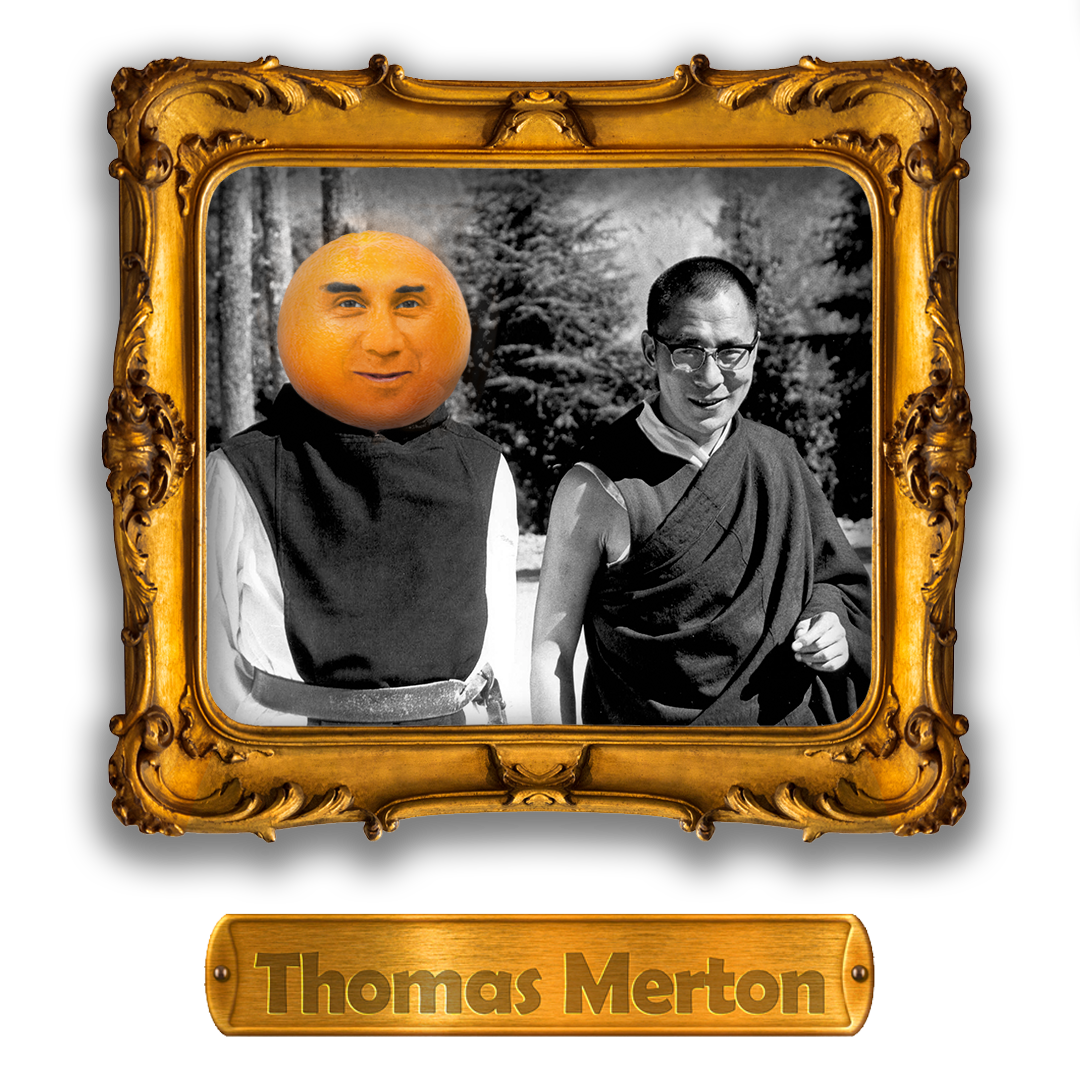
Thomas Merton was a Catholic monk, prolific author, and social activist. 1 According to his official biographer he was also a “contemplative (explorer of darkness and silence), reformer of monastic life, artist, bridge between Western and Eastern religious thought” and a poet.2 He was also “like a spiritual father” to the Dalai Lama 3 4 and an exemplary American according to Pope Francis.5
There is no way this short blurb could capture this complex individual,6 so it is easier to mention what he wasn’t: a fan of factory faming. He wrote the following shortly before his death in 1968, back when factory farming was still in its infancy:
“Since factory farming exerts a violent and unnatural force upon the living organisms of animals and birds, in order to increase production and profits, and since it involves callous and cruel exploitation of life, with implicit contempt for nature and for life, I must join the protest which is being uttered against it.
It does not seem that these methods have any really justifiable purpose except to increase the quantity of production at the expense of quality: if that can be called a justifiable purpose… The mistreatment of animals in ‘intensive husbandry’ is the part of this larger picture of insensitivity to genuine values and indeed to humanity and to life itself – a picture which more and more comes to display the ugly lineaments of what can only be called by its right name: barbarism.” 7
[1] “He wrote over sixty other books and hundreds of poems and articles on topics ranging from monastic spirituality to civil rights, nonviolence, and the nuclear arms race.”
- “The Thomas Merton Center at Bellarmine University.” Thomas Merton’s Life and Work – Thomas Merton Center, The Thomas Merton Center at Bellarmine University, http://merton.org/chrono.aspx.
[2] Mott, Michael. The Seven Mountains of Thomas Merton, Houghton Mifflin, 1984, Preface.
[3] Pearson, Paul. “The Life of Thomas Merton: Sacred Journeys.” YouTube, Festival of Faiths, 19 Aug. 2015, https://www.youtube.com/watch?v=-TyxhZe76gg.
This statement is reported by Dr. Paul Pearson, Director of the Merton Center at Bellarmine University at 21:50 minutes into this lecture.
[4] In his autobiography, the Dalai Lama wrote of Merton “I could see he was a truly humble and deeply spiritual man… it was Merton who introduced me to the real meaning of the word ‘Christian’.”
- Dalai Lama XIV. Freedom in Exile. 1st ed., HarperCollins, 1990.
[5] Pope Francis declared Merton was one of a handful of “representatives of the American people” and “shaped fundamental values which will endure forever in the spirit of the American people” He added:
“A nation can be considered great when it defends liberty as Lincoln did, when it fosters a culture which enables people to ‘dream’ of full rights for all their brothers and sisters, as Martin Luther King sought to do; when it strives for justice and the cause of the oppressed, as Dorothy Day did by her tireless work, the fruit of a faith which becomes dialogue and sows peace in the contemplative style of Thomas Merton.”
- “Transcript: Pope Francis’s Speech to Congress.” The Washington Post, WP Company, 24 Sept. 2015, https://www.washingtonpost.com/local/social-issues/transcript-pope-franciss-speech-to-congress/2015/09/24/6d7d7ac8-62bf-11e5-8e9e-dce8a2a2a679_story.html.
[6] “Thomas Merton was so many things… that is disconcerting for those who know him best in one aspect to find him best in one aspect to find him treated exclusively from another point of view.”
- Mott, Michael. The Seven Mountains of Thomas Merton, Houghton Mifflin, Boston, MA, 1984.
[7] Weiss, Monica. The Prophetic Merton – Once Again, http://merton.org/ITMS/Seasonal/36/36-1Weis.pdf. Accessed 10 Jan. 2022. Available at http://merton.org/ITMS/Seasonal/36/36-1Weis.pdf as well as http://mpianalto.blogspot.com/2012/11/merton-on-factory-farming-1965.html